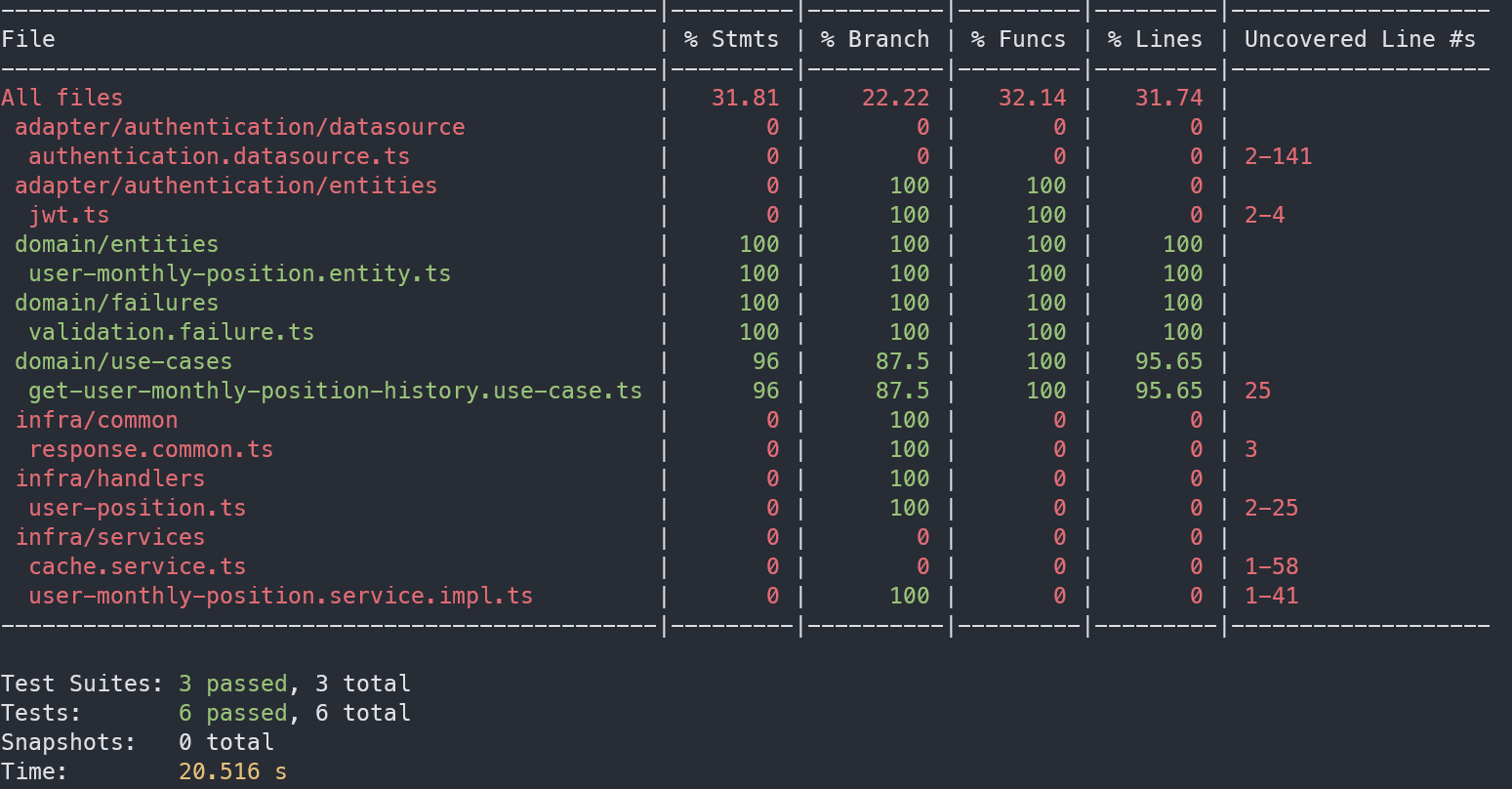I'm building an AWS Lambda function and trying to write some integration tests for it. The Lambda function is running locally using serverless-offline plugin and simply receive a GET request with some query parameters. I'm using Jest and Supertest to write my integration tests as follow:
import request from 'supertest';
describe('User position handler', () => {
it('should return history', () => {
const server = request('http://0.0.0.0:4000');
return server
.get(`/local/position?type=month&period=3`)
.expect(200)
.expect((response) => {
console.log('RESPONSE', response);
expect(response.body).toHaveLength(3);
});
});
});
The problem is that when I run Jest with collect coverage option the code reached by the request sent with Supertest is not computed in the metrics. Running jest --collectCoverage the result is:
The question is that I know that, for example, infra/handlers/user-position.ts is being reached and covered more than 0% statements, but the coverage metrics don't show as expected. Also, I know that user-monthly-position.service.impl.ts is being reached at some point of the flow since this service is responsible for returning data from an external service and the response from Supertest is returning data. The green lines are from files covered by unit test that are using only Jest (and not Supertest, obviously)
I know that when using Supertest with Express framework I can pass an instance of the Express app. to the request function. This way I think that Jest can "inspect" or "instrument" the function call stack to measure the coverage (code sample below). But how can I do the same passing the URL of a running serverless-offline Lambda?
const request = require('supertest');
const assert = require('assert');
const express = require('express');
const app = express();
app.get('/user', function(req, res) {
res.status(200).json({ name: 'john' });
});
request(app)
.get('/user')
.expect('Content-Type', /json/)
.expect('Content-Length', '15')
.expect(200)
.end(function(err, res) {
if (err) throw err;
});
Here the code of my handler function:
export default async (event: APIGatewayEvent): Promise<APIGatewayProxyResult> => {
await cacheService.bootstrapCache();
const userMonthlyPositionService = new UserMonthlyPositionServiceImpl(
cacheService.connectionPool,
);
const getUserMonthlyPositionHistory = new GetUserMonthlyPositionHistory(
userMonthlyPositionService,
);
const result = await getUserMonthlyPositionHistory.execute({
cblc: 999999,
period: 3,
type: 'month',
});
return buildResponse(200, result);
};
My question is: how can I collect right code coverage metrics from Jest using Supertest and Serverless Framework? Am I forgetting a detail? Thanks!

